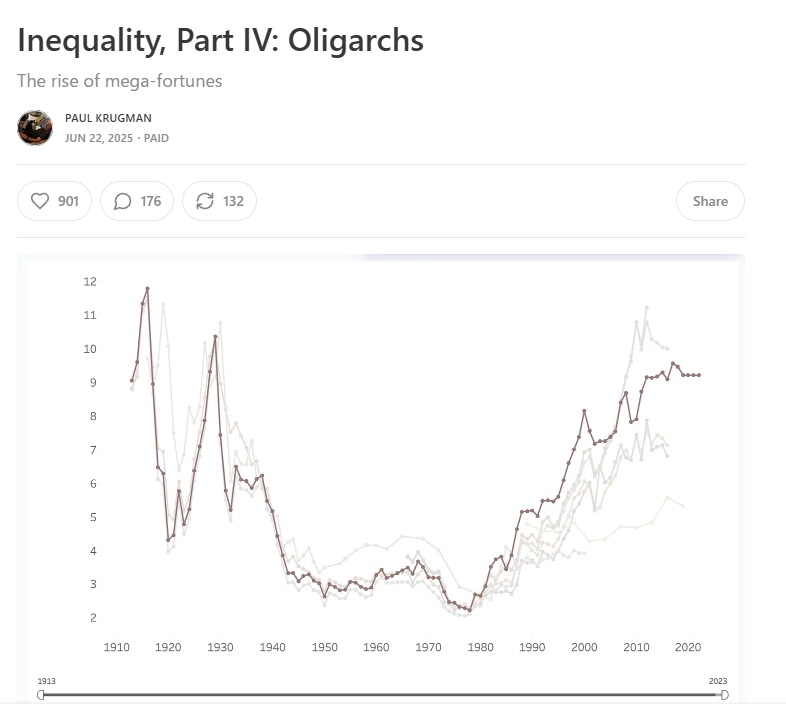
Paul Krugman believes that the current extraordinariy high tech stock valuation (and the source of inequalities) can be largely explained by the “network effects” where customers tend to benefit from a larger user pool, but find it difficult to leave the network. He also describes that “break of social contracts” is essetial to predatory financialization of the economy, and to the gains of the financial sector participants.
That is true. Tech giants will extract the maximum benefits out of the network effects. So do the financial institutions who financialize the investments in other sectors. But these are only a “static” description of the essentially a dynamic phenomenon. Once a maximum gain is extracted, there wil be no further potential for the continuting growth of the valuation. Naturally, the static stock market is a disaster for the financial sector, as they will not be able to gain income from market transactions. It will be very unfortunate, because the financial sector accounts for 8 percent of the GDP of the United States. Any significant loss for the financial sector will quickly lead to a major recession.
To avoid the disaster, the tech stock valuation may have to continue to rise, and for this purpose the industry revenues must continue to grow. Is it possible? Where would that extra revenue come from? When most humans are connected to the tech sector one way or the other, no explosive growth can be expected from subscriber growth. The current expection is that AI will help create new services to bring further revenue to the service providers. Additionally, as tech services are difficult to measure in real terms, inflation will help too. Either way, unless new revenue sources are found, we may be reaching a point where no further significant revenue “growth” can be expected from the tech sector.